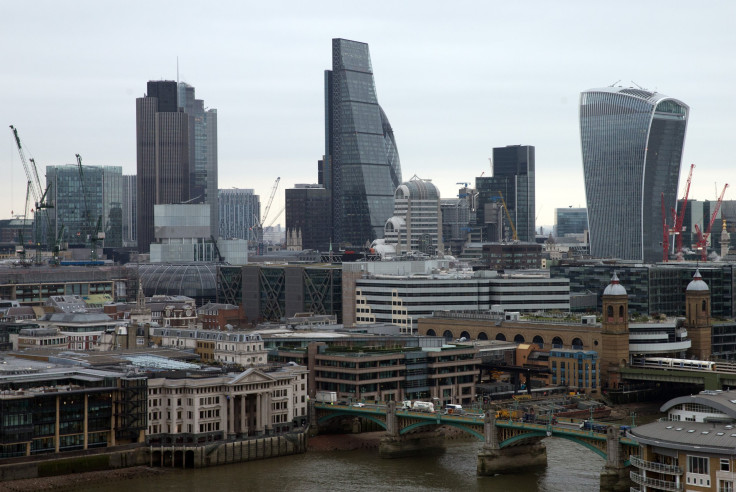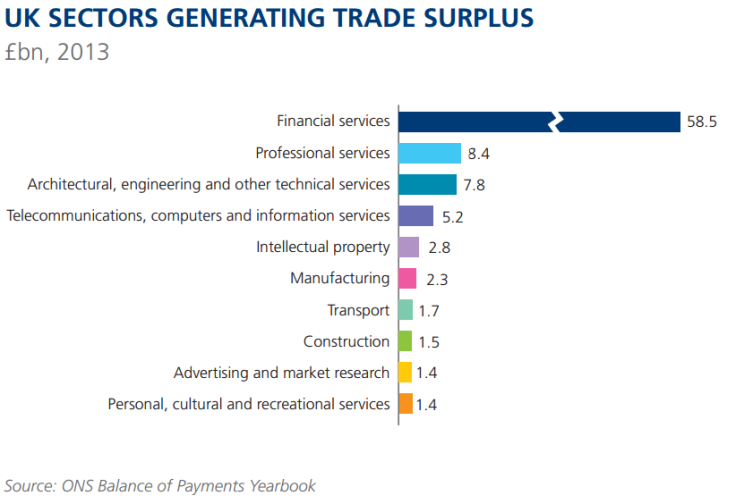EU Brexit 2016: Banks On Both Sides Of The Atlantic Wary Of UK Breaking Away From European Union

A campaign for a so-called Brexit, the term for Britain's departure from the European Union, has gained steam in the past week, with popular London Mayor Boris Johnson publicly backing the plan. But if the U.K. waved goodbye to the EU, bankers warn that the country would also be bidding adieu to the financial lifeblood of the British economy.
HSBC, Europe’s largest bank, said it would move 1,000 investment banking jobs from its London headquarters to Paris if the Brexit coalition won out. Germany’s Deutsche Bank indicated last year that it would consider moving a sizable share of its 9,000 positions out of Britain should the U.K. quit the EU.
“Banks won’t disappear from London overnight, but they will over time if Britain votes no,” two Goldman Sachs executives wrote in an op-ed in The Times of a public referendum over the U.K. staying in the EU.
The stakes are high, both for London’s status as a global banking hub and for the broader British economy. The financial sector accounts for 12 percent of the U.K.’s gross domestic product, a third of which consists of services to overseas clients, according to TheCityUK, an industry group. Financial services businesses produce a trade surplus greater than all other industries combined.

Banks have shared concerns that a protracted battle over leaving the EU could make foreign investors uneasy, while the uncertainty over regulations could drive financial services businesses out of London. The city, which serves as the world’s financial port into Europe, is currently rated the top global banking center by the think tank Z/Yen.
But in an analysis released Monday, JPMorgan Chase analysts wrote that London’s cherished status as a financial hub would be “under threat” in the case of a Brexit as investors fled the regulatory uncertainty that would result.
“That period of uncertainty would be very damaging to the U.K.,” HSBC Chairman Douglas Flint told Reuters.
Those worries have increased as battle lines have grown starker following Johnson’s declaration backing the Brexit campaign Sunday. The rising coalition has pushed U.K. Prime Minister David Cameron to defend his negotiations with the EU over conditions for staying in the bloc, among them concessions in financial regulation strongly resisted by European politicians such as German Chancellor Angela Merkel.
Financial markets have been quick to react to the political furor. The U.K. pound fell 2.3 percent against the dollar Monday, the largest drop since early 2009.
That could be just the beginning. Goldman Sachs has predicted that a Brexit would send the pound cratering as much as 20 percent. The JPMorgan analysts wrote that separating from the EU would leave Britain “extremely vulnerable to capital flight," raising the risk of a “sharp drop in business activity.”
Those warnings have been echoed by numerous other globally active banks, both in the U.K. and abroad. Citigroup has estimated that leaving the EU could cost the U.K. 75,000 jobs. The Swiss bank UBS said that the British economy could contract by as much as 2.8 percent of GDP.
It appears that British banking regulators have bet against the odds of a Brexit, which has the support of nearly half the British population. As of Feb. 9, the Financial Times reported, financial regulators in the U.K. had yet to inquire with banks over the impact of leaving the EU.
A public referendum over the U.K.’s continuing EU membership is set to be held June 23.
© Copyright IBTimes 2024. All rights reserved.






















